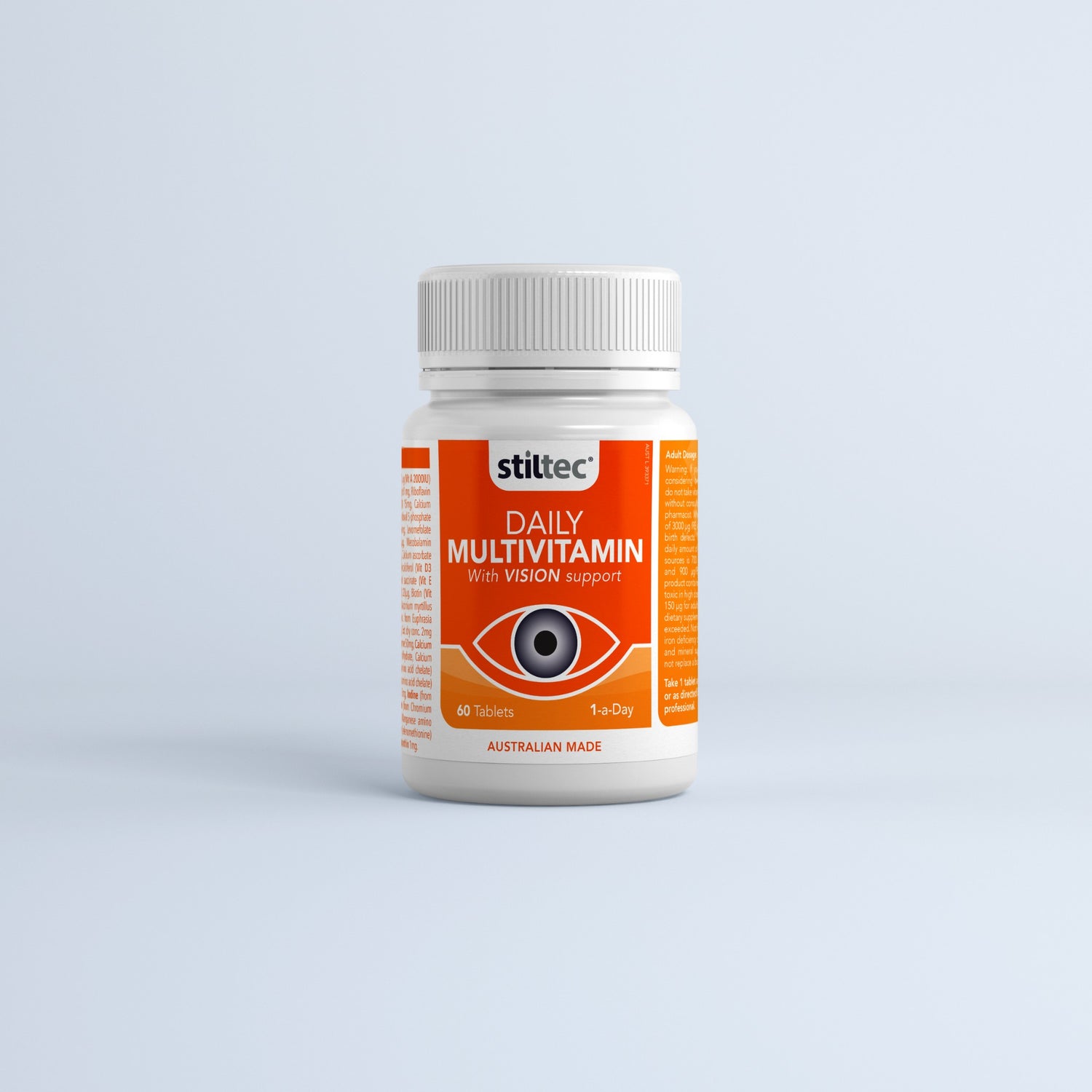
Things You Should Know About Taking a Multivitamin
Understanding the 'why'

Is it good to take multivitamins?
In an ideal world, we’d get all the nutrients we need from eating a healthy, balanced diet, but it can be tricky for some people to get enough. That’s where a multivitamin comes in handy. A 2014 study published in Nutrition Journal found that while a varied diet is the best source of essential vitamins and minerals, a multivitamin may help fill in any small but critical nutritional gaps that could otherwise lead to deficiencies. Taking a multivitamin not only tops up your vitamin and mineral levels, it also has a number of benefits for your body and brain.

Who needs a multivitamin?
Eating a wide range of fresh fruit and vegetables, nuts and seeds, wholegrain foods and healthy sources of protein should provide us with a good balance of nutrients, but not many of us consume this on a daily basis. It is estimated that only 25% of Australians consume five or more portions of fruit and veg a day. Furthermore, nearly 50% of adults ate less than three portions a day. And even if you do eat plenty of fruit and veg, chances are you won’t be getting as many vitamins and minerals from these foods as you would have a century ago. An ongoing study by McCance and Widdowson found that nutrient levels in fruit and vegetables have declined significantly over the past 70 years, with modern farming methods and new plant varieties believed to be the cause.
Certain groups of people may also benefit from taking a multivitamin, such as:
- Those with allergies or intolerances
- Active people burning energy and living stressful lives.
- Vegetarians and vegans
- People over 50

What happens if we don't get enough vitamins?
Our bodies need a balance of nutrients to function normally. If we don’t get enough nutrients from food, or can’t absorb the nutrients properly, we could end up with nutritional deficiencies. The way we process certain vitamins also means we need to keep replenishing them. The fat-soluble vitamins – A, D, E and K – can be stored in our bodies, giving us a ready supply. But others, the water-soluble vitamins need to be consumed every day to help our bodies function normally. These are all the B vitamins and the powerful antioxidant vitamin C.
The Key Pillars to a Healthy Future

Exercise
Reduce stress, boost energy, build strength and prevent health problems.
Exercise is an important part of a healthy lifestyle. Exercise prevents health problems, builds strength, boosts energy, and can help you reduce stress. It can also help you maintain a healthy body weight and curb your appetite.
Everyone can benefit from physical activity. For most people, it is possible to begin exercising on your own at a slow pace. If you have never exercised before, start with a 10-minute period of light exercise. A brisk walk every day is a good first exercise. Slowly increase how hard you exercise and for how long
Talk to your doctor before starting an exercise program. This is especially important if your doctor is already monitoring you for a health problem.

Nutrition
Tips for healthy eating.
When studying diet and nutrition in Australia, according to the Australian Institute of Health and Welfare, most Australians have a poor diet. The Australian dietary guidelines recommend a variety of foods including plenty of vegetables as well as fruit, grains, lean meat, other proteins and low-fat dairy.
However, only around half of Australian adults eat the recommended daily serves of fruit and the vast majority are not consuming the recommended 5 to 6 servings of vegetables a day. Coupled with a high intake of discretionary foods like alcohol and salty snacks, long-term health conditions like diabetes, heart disease and obesity are some of the most prevalent in the Australian population.

Life Choices
Our choices have a big impact upon our health. Here's what you can do.
Every day we make dozens if not hundreds of choices that can impact on our health. You may know the habits that you have that really are detrimental to your health. Well did you know that if you can change your habit for just three weeks then you are well on the way to creating a new healthier habit. Of course, there are the so-called big-ticket items such as smoking, eating too much and too much alcohol but here are a few smaller steps that you may like to consider:
Fall in love with stairs. Always take the stairs when it is an option, many escalators for example have a very well-functioning set of stairs right beside them. Movement burns calories and is good for your joints and heart.
Replace every other soft or alcoholic drink with a glass of water. Go to sleep earlier, sleep is required for our bodies to function at their best.

Mindfulness
Bring awareness to what you're experiencing so you're fully present.
Talk about your brand
Talk about your brand
Talk about your brand

